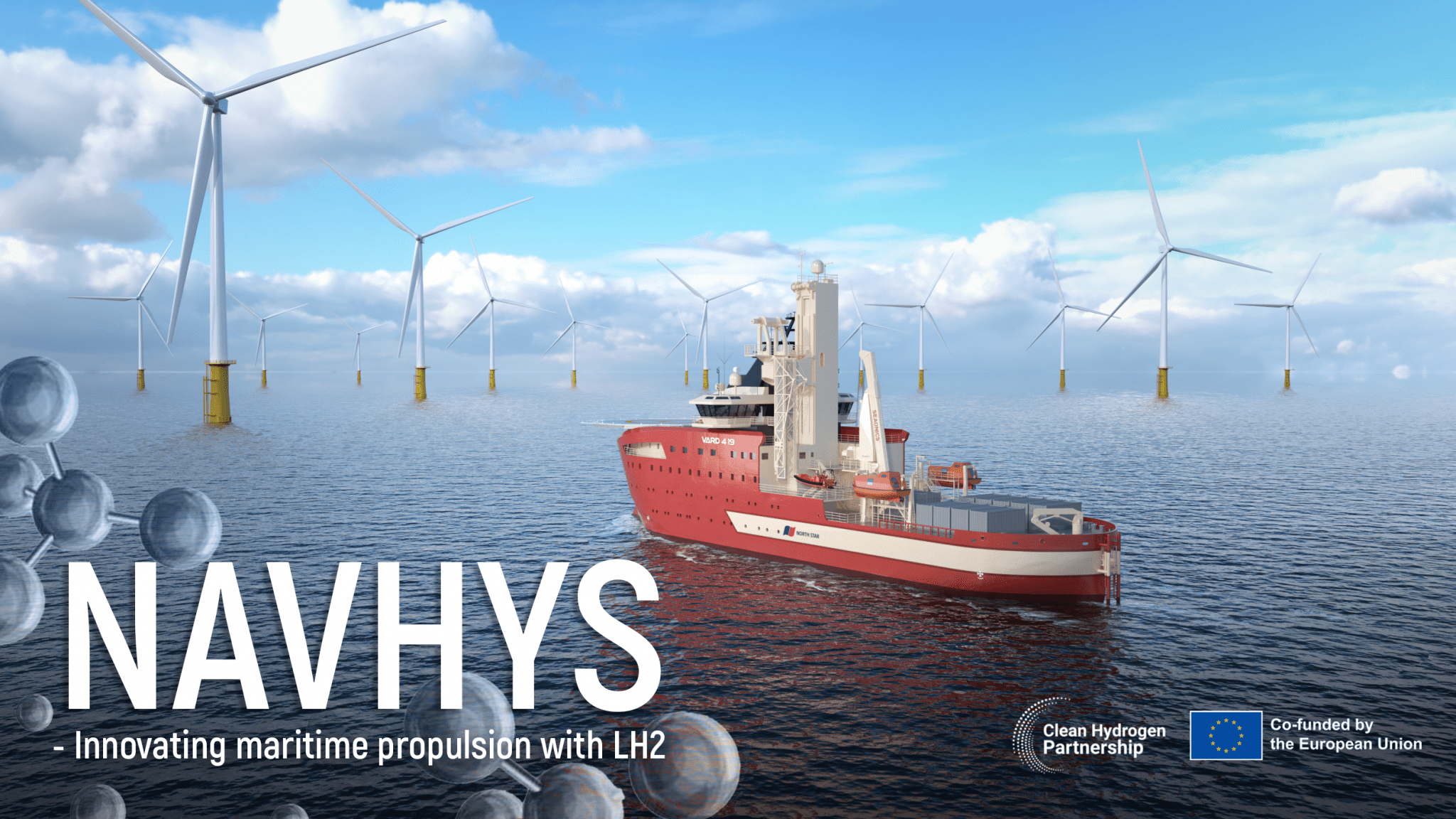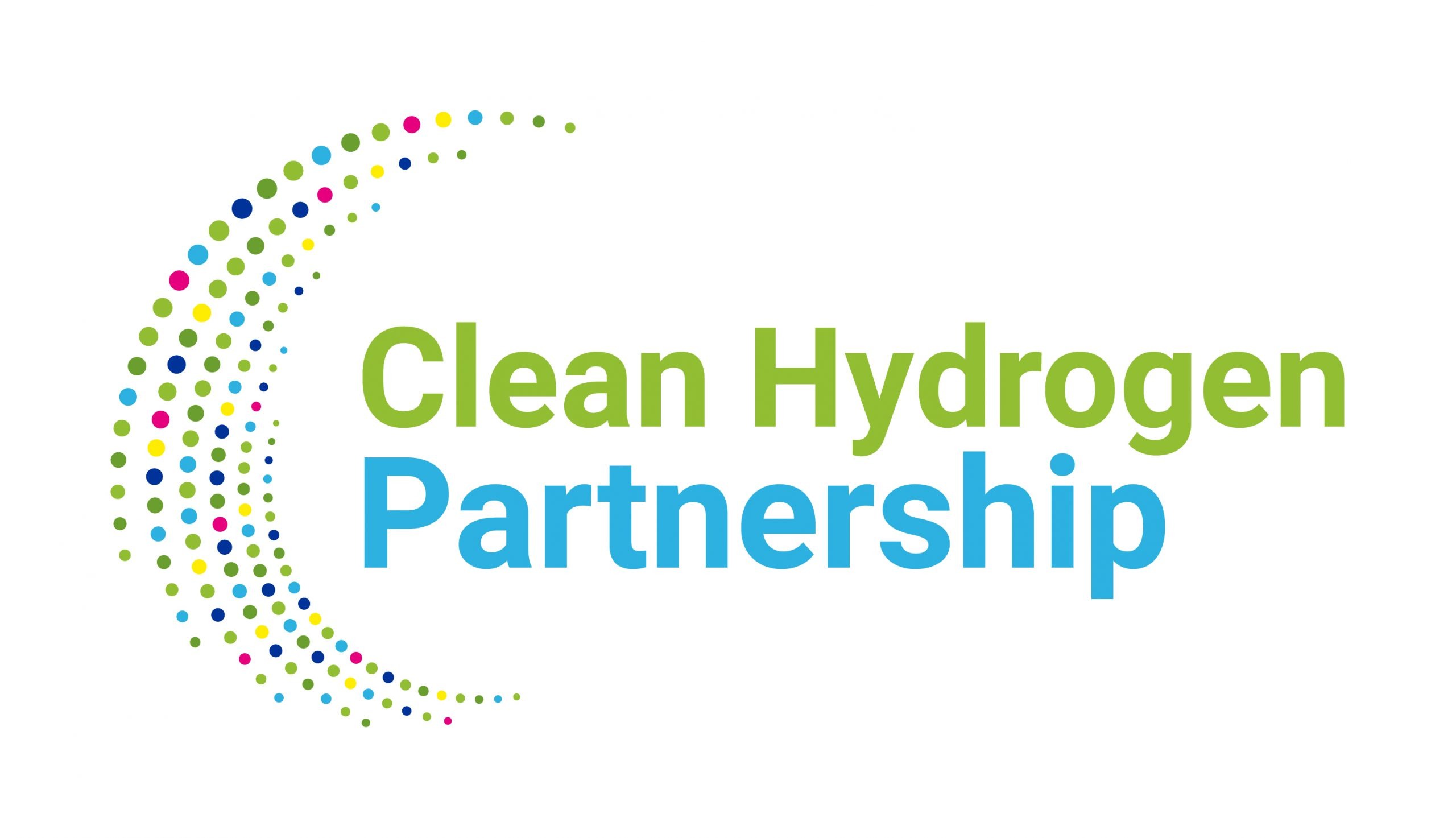ArianeGroup’s NAVHYS project: liquid hydrogen for maritime transport
06.02.2025

Building on its experience of using liquid hydrogen as a fuel for Ariane rockets, ArianeGroup is launching the European NAVHYS* project. Supported by the Clean Hydrogen Partnership and co-funded by the European Union, NAVHYS aims to develop innovative solutions for storing and using liquid hydrogen (LH2) as an energy carrier for maritime transport.
Marie-Sophie Nizou, Program Manager at ArianeGroup and coordinator of NAVHYS, points to the importance of hydrogen as a promising energy carrier for shipping, and explains that ArianeGroup aims to demonstrate this with the example of Service Operation Vessels (SOV) that provide maintenance for offshore wind farms. “Currently, near-coast projects rely on gaseous hydrogen. For long-distance shipping, liquid hydrogen offers more advantages because of its energy density. However, storing this fuel requires tanks capable of maintaining extremely low temperatures (-253°C). The severe constraints linked to cooling and insulating tanks on board ships are a technological challenge here,” she tells us. “Our experience with Ariane will help us to provide a solution.”
NAVHYS’ goal is to provide a concept for a below-deck LH2 storage and fuel system for an SOV to propose a fully decarbonised maintenance solution for wind energy providers.
A major challenge is that integrating this technology will require major adaptations on board ships, as well as to port and maritime infrastructures.
The design of the liquid hydrogen fuel system, drawing on our experience of space system architectures and technologies and below-deck integration in the ship, represent a disruptive innovation in comparison with previous maritime projects and design guidelines.
The project brings together expertise from a wide range of fields, including the space industry, shipbuilding, ship operations and energy and safety, and seeks to drive forward shipping decarbonisation. Over the next 36 months, a series of milestones to successfully develop and test the system.
“For ArianeGroup, this project is an excellent opportunity to leverage our knowledge gained from space sector experience towards zero emission heavy mobility applications,” says Marie-Sophie. NAVHYS is focused on providing a concept that will reduce the environmental footprint and improve the energy efficiency of a hydrogen fuel system. The selection of NAVHYS as an active project, backed by the Clean Hydrogen Partnership channelling Europe’s hydrogen strategy through optimising research and innovation activities and co-funded by the European Union, is evidence that liquid hydrogen is a clear candidate for decarbonising the shipping sector.
Clean Hydrogen Partnership Executive Director Valérie Bouillon-Delporte says, “The Clean Hydrogen Partnership is proud to support this pioneering project, which explores in-hull integration of liquid hydrogen tanks for maritime applications. NAVHYS is fully in line with the Clean Hydrogen Partnership’s core mission, which is to promote innovations that drive both the energy transition and the competitiveness of European companies; it will play a crucial role in accelerating the decarbonisation of the sector while ensuring that Europe remains at the forefront of clean hydrogen technology.”
*The project’s name takes its inspiration from the Latin words ‘navis’ (ship) and ‘vis’ (force/power), put together with the first letters of hydrogen (‘hy’) – NAVHYS conveys ‘the power of hydrogen for shipping’.
The project partners
ArianeGroup is a long-term expert in the handling, management and safekeeping of LH2 for space applications. It is now proposing this LH2 portfolio expertise to support and develop maritime, aeronautics and rail applications going forward. ArianeGroup is the coordinator of the NAVHYS project and is responsible for designing the architecture and testing the liquid hydrogen fuel system.
North Star is a shipping company that owns and operates a fleet of vessels engaged in the offshore industry, providing comprehensive operational experience. North Star has committed to decarbonisation pathways according to International Maritime Organisation (IMO) regulations and net zero goal by 2045. It is dedicated to the zero-emission vessel goal of through sustainable fuels, particularly hydrogen. North Star will define the operations scenario and confirm the operability of the proposed design.
Vard Design (VARD) is the ship design and engineering arm of Vard Group. VARD is a shipbuilder specialising in design and construction of highly advanced ships within the offshore, naval and expedition cruise segments. VARD is committed to be a leader in maritime operations green and technology transition. The group has extensive experience in managing ship fuels such as liquefied natural gas, methanol and ammonia, and has been involved in several research projects focused on energy efficiency and ship and system design to accommodate the use of alternative fuels in future ships. VARD will design and engineer the SOV ship.
ENGIE (France) is an historical leader in gas marketing in France and the first operator of gas infrastructure in Europe. It is a leader in demonstrating green hydrogen injection into the gas distribution network in France, and has contributed to the construction and maintenance of hydrogen stations for buses. ENGIE will design the supply chain and bunkering station.
INERIS (France) contributes to the prevention of risks posed by economic activities to the health and safety of people and property and to the environment. The institute carries out research and expert analysis on technological hazards to gain a better understanding of the phenomena that can lead to damage to the environment, health and assets. INERIS will lead hazard identification.
Research Institutes of Sweden AB (RISE) has deep knowledge and experience regarding safety analysis and in particular hydrogen hazards and HAZID (hazards identification) workshops, as well as the IMO alternative design process (MSC.1-Circ.1455). RISE will bring competences in safety analysis and hydrogen hazard and HAZID analysis.
Bureau Veritas Marine & Offshore (France) is a classification society which has built up extensive experience in gas fuelled- and (hybrid) battery-powered ships. It collaborates widely with industry partners to support the energy transition toward climate neutrality in the maritime industry. Bureau Veritas will provide approval in principle for the developed technologies.
LEITAT (Spain) is a technological centre that focuses on developing technologies across different sectors. It manages technologies to create sustainable (social, environmental, economic) and industrial value. It is a key European player to conduct sustainability and circularity assessment of technologies. LEITAT will be in charge of the LCA (Life Cycle Assessment) evaluation and NAVHYS solution assessment.
The University of Birmingham – United Kingdom ranks among the world’s top 100 universities for research. The university has a strong track record in the proposed area of collaboration, technology and engineering, and has been successful in bridging the gap between industry and academia. UoB’s key role is in scaling upthe technology and TCO (total cost of ownership), CAPEX (capital expenditures) and OPEX (operating expenditurers) evaluation.
European Research Institute for Gas and Energy Innovation (ERIG; Belgium) is a European research and development organisation that seeks to guide gas in the transition process towards a future renewable-based energy system. ERIG will ensure dissemination, communication and exploitation.
Gas and Heat (GAH; Italy) is a leader in the design, construction, supply and installation of systems and tanks for the propulsion and storage of liquefied gases for marine use and cargo transportation as well as for land storage facilities. GAH’s R&D activities in gas and heat in the last two years have been focused on liquid hydrogen storage systems for marine and onshore use. GAH’s key role is in the design the LH2 fuel tank.
Benkei (France) is a consultancy company supporting clients in defining and implementing their innovation strategies and collaborative projects. BENKEI has particular expertise in open and collaborative innovation and in setting up and managing collaborative projects. BENKEI will lead and support project coordination and management.
The Maritime Cluster of Northern Germany (MCN, associated partner) is a maritime network founded in 2011 with more than 380 members from business, science, politics and administration across the five federal states of northern Germany along the coastline from Poland to the Netherlands.


The project is supported by the Clean Hydrogen Partnership and its members.
The Clean Hydrogen Partnership is supporting research and innovation (R&I) activities in hydrogen technologies in Europe. It aims to accelerate the development of advanced clean hydrogen applications ready for market, across end-use sectors such as energy, transport, building and industry, while strengthening the competitiveness of the clean hydrogen value chain. The members of the partnership are the European Commission, fuel cell and hydrogen industries represented by Hydrogen Europe and the research community represented by Hydrogen Europe Research.